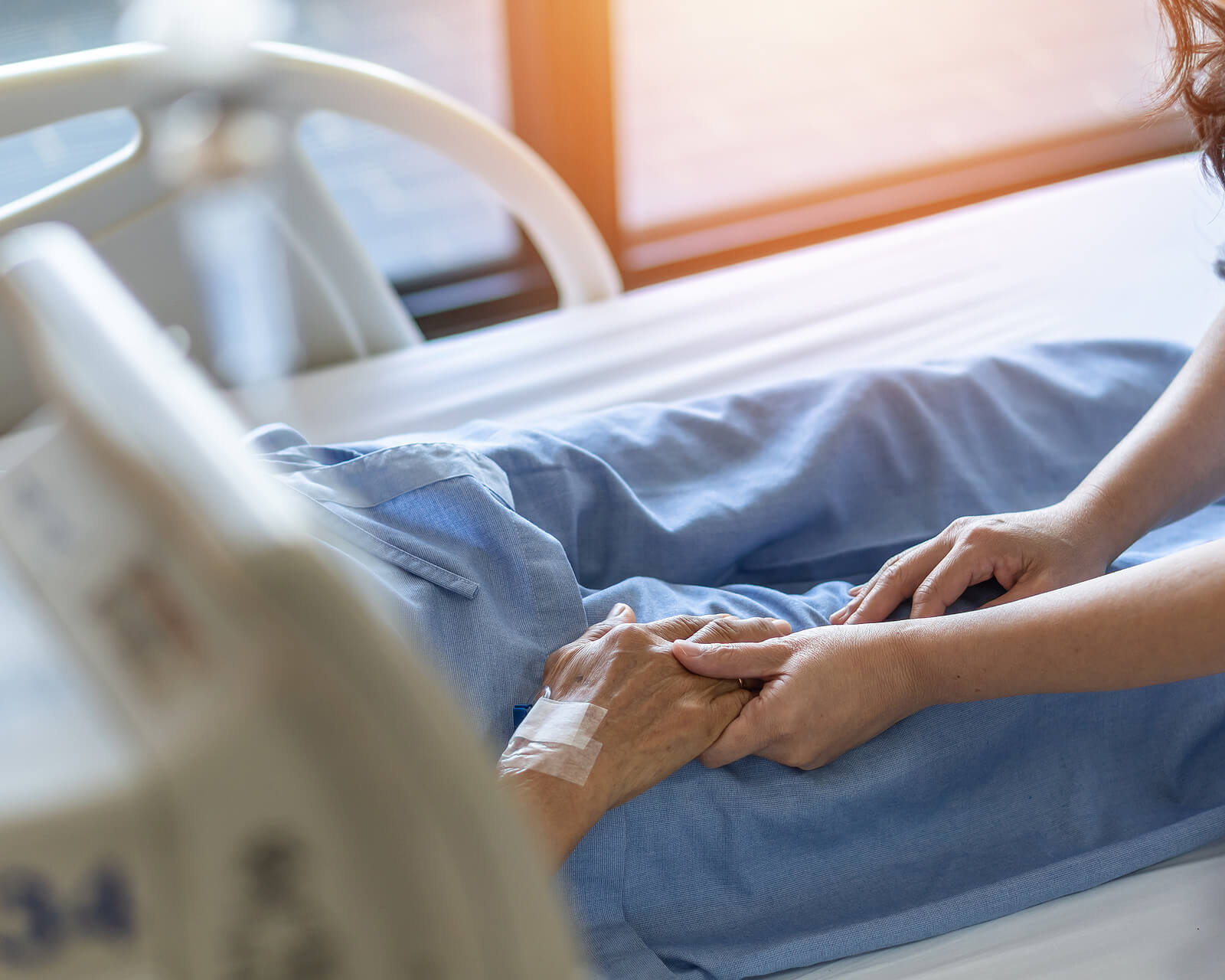All About the Treatment of Pneumonia

Along with the flu, pneumonia is the eighth leading cause of death in developed countries like the United States and the leading cause of death from infection, according to the MSD Manual. Therefore, the treatment of pneumonia is crucial.
When an infection (bacterial, mycobacterial, viral, fungal, or parasitic) causes acute inflammation of the lungs, it’s called pneumonia. This can’t be left untreated as it could be life-threatening.
Depending on the cause, the type of pneumonia (whether it is hospital-acquired pneumonia or community-acquired pneumonia or others), whether the person has a healthy or weakened immune system, among other aspects related to health in general, the treatment can vary.
However, the main objective of treating pneumonia is always to cure the infection and prevent complications such as severe lung injury, excessively low blood pressure, among others.
Prescriptions

The prescription of antibiotic medications (such as azithromycin or erythromycin), antivirals (such as acyclovir), or antifungals (such as fluconazole) isn’t uncommon in the treatment of pneumonia. The most common are antibiotics, since many cases are bacterial in origin.
- Rapid use of antibiotics reduces the severity of pneumonia and the likelihood of developing complications, some of which can lead to death.
- According to various sources, broad-spectrum antibiotics are rarely used except in severe cases, among other issues, due to antibiotic resistance.
- Even when antibiotics are used frequently, they aren’t helpful in all cases of pneumonia. Only when it has a bacterial origin can antibiotics be used. For this reason, it isn’t a good idea to try to treat the disease at home with any over-the-counter medicine. Doing so could make things worse.
Over the counter drugs
Over-the-counter pain relievers that can be included in the treatment of pneumonia are acetaminophen, ibuprofen, naxoprene, or aspirin. This will always be after consultation with your doctor, in order to know how to make good use of the medications throughout the treatment.
Fever medications and expectorants are other options. The latter are medications that help expel sputum (either by stimulating the cough reflex or by helping sputum to be more fluid and easier to expel). Bromhexine is an example of this type of drug.
Cough suppressants are contraindicated in the treatment of pneumonia.
Hospitalization

As indicated in the MSD Manual, if the person’s condition is so severe that they can’t breathe on their own, has excessively low blood pressure, is dehydrated, confused, and has other signs and symptoms, then they must be hospitalized.
- People over 65, infants, patients with pre-existing heart or lung disease, and seriously ill people in general are more likely to require hospitalization.
Generally, treatment for pneumonia includes antibiotics, antivirals, or antifungals through an IV at first. Then, as the days go by, the antibiotics are stopped intravenously and administered orally. Oxygen therapy and the administration of intravenous fluids is essential.
In some cases, when the patient is extremely weak, it may be necessary to sedate them and temporarily connect them to a ventilator or mechanical respirator.
Lifestyle and natural remedies
Treatment for pneumonia also includes some lifestyle changes and household measures. Among them, rest and good hydration stand out (mainly with water and natural drinks, such as fruit juices, broths, and soups).
As an adjunct, the following can be used:
- Drink a cup of coffee, as caffeine has a slight bronchodilator effect, according to some studies.
- Place a humidifier in the room and keep it well ventilated.
- Gargle with salt water to relieve a sore throat and remove some of the mucus.
- Stop smoking and stay away from places where you can smoke passively.
- It’s a good idea to avoid crowded areas that are full of smoke, perfumes, incense, and others.
Although it’s important to rest and not force yourself to do the activities you normally do, you should avoid staying in bed all the time. Instead, try to sit up, get out of bed, and sit in a chair for a while.
If you’re currently receiving treatment for pneumonia, please be sure to resolve any concerns that may arise with your treating physician. Avoid taking action on your own (such as stopping medication or trying to drastically reduce rest), as it could be counterproductive.
Along with the flu, pneumonia is the eighth leading cause of death in developed countries like the United States and the leading cause of death from infection, according to the MSD Manual. Therefore, the treatment of pneumonia is crucial.
When an infection (bacterial, mycobacterial, viral, fungal, or parasitic) causes acute inflammation of the lungs, it’s called pneumonia. This can’t be left untreated as it could be life-threatening.
Depending on the cause, the type of pneumonia (whether it is hospital-acquired pneumonia or community-acquired pneumonia or others), whether the person has a healthy or weakened immune system, among other aspects related to health in general, the treatment can vary.
However, the main objective of treating pneumonia is always to cure the infection and prevent complications such as severe lung injury, excessively low blood pressure, among others.
Prescriptions

The prescription of antibiotic medications (such as azithromycin or erythromycin), antivirals (such as acyclovir), or antifungals (such as fluconazole) isn’t uncommon in the treatment of pneumonia. The most common are antibiotics, since many cases are bacterial in origin.
- Rapid use of antibiotics reduces the severity of pneumonia and the likelihood of developing complications, some of which can lead to death.
- According to various sources, broad-spectrum antibiotics are rarely used except in severe cases, among other issues, due to antibiotic resistance.
- Even when antibiotics are used frequently, they aren’t helpful in all cases of pneumonia. Only when it has a bacterial origin can antibiotics be used. For this reason, it isn’t a good idea to try to treat the disease at home with any over-the-counter medicine. Doing so could make things worse.
Over the counter drugs
Over-the-counter pain relievers that can be included in the treatment of pneumonia are acetaminophen, ibuprofen, naxoprene, or aspirin. This will always be after consultation with your doctor, in order to know how to make good use of the medications throughout the treatment.
Fever medications and expectorants are other options. The latter are medications that help expel sputum (either by stimulating the cough reflex or by helping sputum to be more fluid and easier to expel). Bromhexine is an example of this type of drug.
Cough suppressants are contraindicated in the treatment of pneumonia.
Hospitalization

As indicated in the MSD Manual, if the person’s condition is so severe that they can’t breathe on their own, has excessively low blood pressure, is dehydrated, confused, and has other signs and symptoms, then they must be hospitalized.
- People over 65, infants, patients with pre-existing heart or lung disease, and seriously ill people in general are more likely to require hospitalization.
Generally, treatment for pneumonia includes antibiotics, antivirals, or antifungals through an IV at first. Then, as the days go by, the antibiotics are stopped intravenously and administered orally. Oxygen therapy and the administration of intravenous fluids is essential.
In some cases, when the patient is extremely weak, it may be necessary to sedate them and temporarily connect them to a ventilator or mechanical respirator.
Lifestyle and natural remedies
Treatment for pneumonia also includes some lifestyle changes and household measures. Among them, rest and good hydration stand out (mainly with water and natural drinks, such as fruit juices, broths, and soups).
As an adjunct, the following can be used:
- Drink a cup of coffee, as caffeine has a slight bronchodilator effect, according to some studies.
- Place a humidifier in the room and keep it well ventilated.
- Gargle with salt water to relieve a sore throat and remove some of the mucus.
- Stop smoking and stay away from places where you can smoke passively.
- It’s a good idea to avoid crowded areas that are full of smoke, perfumes, incense, and others.
Although it’s important to rest and not force yourself to do the activities you normally do, you should avoid staying in bed all the time. Instead, try to sit up, get out of bed, and sit in a chair for a while.
If you’re currently receiving treatment for pneumonia, please be sure to resolve any concerns that may arise with your treating physician. Avoid taking action on your own (such as stopping medication or trying to drastically reduce rest), as it could be counterproductive.
- Álvarez Martínez CJ. NEUMONÍAS: CONCEPTO, CLASIFICACIÓN Y DIAGNÓSTICO DIFERENCIAL [Internet]. [cited 2021 Jun 27]. Available from: https://www.neumomadrid.org/wp-content/uploads/monogix_1._neumonias-concepto.pdf
- Neumonía adquirida en comunidad [Internet]. Asociación española de pediatría. [cited 2021 Jun 27]. Available from: https://www.aeped.es/sites/default/files/documentos/neumonia.pdf
- Pneumonia diagnosis and treatment | British Lung Foundation [Internet]. [cited 2021 Jun 27]. Available from: https://www.blf.org.uk/support-for-you/pneumonia/diagnosis-and-treatment
- Sethi S. Generalidades sobre la neumonía – Trastornos pulmonares [Internet]. Manual MSD versión para profesionales. [cited 2021 Jun 27]. Available from: https://www.msdmanuals.com/es/professional/trastornos-pulmonares/neumonía/generalidades-sobre-la-neumonía
Este texto se ofrece únicamente con propósitos informativos y no reemplaza la consulta con un profesional. Ante dudas, consulta a tu especialista.







